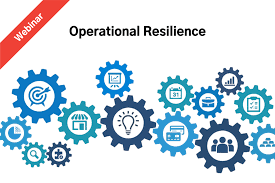
Enhancing Business Performance Through Operational Excellence
The Importance of Operational Efficiency in Business
Operational efficiency is a critical aspect of any successful business, regardless of its size or industry. It refers to the ability of an organisation to deliver its products or services in the most cost-effective manner while maintaining high quality standards. Achieving and maintaining operational efficiency can provide numerous benefits to a business, including increased productivity, reduced costs, improved customer satisfaction, and a competitive edge in the market.
Increased Productivity
By streamlining processes, eliminating waste, and optimising resources, businesses can significantly increase their productivity levels. When employees are able to work more efficiently and effectively, they can accomplish more in less time, leading to higher output and better overall performance.
Reduced Costs
Operational efficiency helps businesses identify areas where costs can be reduced without compromising quality. By cutting unnecessary expenses, minimising waste, and improving resource allocation, organisations can save money and improve their bottom line.
Improved Customer Satisfaction
Efficient operations lead to faster delivery times, better service quality, and enhanced customer experiences. By meeting customer demands promptly and effectively, businesses can build trust and loyalty among their client base, ultimately leading to increased satisfaction and retention rates.
Competitive Edge
In today’s fast-paced business environment, companies that operate with high levels of efficiency have a significant competitive advantage. By being able to deliver products or services faster and at lower costs than their competitors, efficient businesses can attract more customers and gain market share.
In conclusion, operational efficiency is essential for the long-term success and sustainability of any business. By focusing on improving processes, reducing waste, and maximising resources, organisations can achieve higher productivity levels, lower costs, increased customer satisfaction, and a competitive edge in the market.
5
- What is operational efficiency and why is it important?
- How can businesses improve their operational efficiency?
- What are the key benefits of achieving operational excellence?
- What role does technology play in enhancing operational performance?
- How can companies measure and track their operational efficiency?
What is operational efficiency and why is it important?
Operational efficiency refers to the ability of an organisation to deliver its products or services in the most cost-effective manner while maintaining high quality standards. It involves streamlining processes, eliminating waste, and optimising resources to achieve maximum productivity and performance. Operational efficiency is crucial for businesses as it can lead to increased productivity, reduced costs, improved customer satisfaction, and a competitive advantage in the market. By operating efficiently, businesses can enhance their overall performance, meet customer demands more effectively, and stay ahead of their competitors.
How can businesses improve their operational efficiency?
To enhance their operational efficiency, businesses can implement various strategies and practices. Firstly, conducting a thorough analysis of existing processes to identify bottlenecks and inefficiencies is crucial. Streamlining workflows, automating repetitive tasks, and integrating technology solutions can help streamline operations and boost productivity. Investing in employee training and development to enhance skills and knowledge can also contribute to improved efficiency. Additionally, fostering a culture of continuous improvement and innovation within the organisation can drive operational excellence and sustainable growth. By prioritising these initiatives, businesses can effectively enhance their operational efficiency and achieve long-term success.
What are the key benefits of achieving operational excellence?
Achieving operational excellence offers a multitude of key benefits for businesses. Firstly, it leads to increased productivity by streamlining processes and optimising resources, allowing for higher output levels in less time. Secondly, operational excellence results in reduced costs through the identification of inefficiencies and waste, leading to improved financial performance. Additionally, it enhances customer satisfaction by enabling faster delivery times and better service quality, ultimately building trust and loyalty among customers. Lastly, operational excellence provides a competitive edge in the market by allowing businesses to deliver products or services more efficiently than their competitors, attracting more customers and driving growth.
What role does technology play in enhancing operational performance?
Technology plays a crucial role in enhancing operational performance by streamlining processes, increasing efficiency, and improving overall productivity. With the advent of advanced technologies such as automation, data analytics, cloud computing, and artificial intelligence, businesses can automate repetitive tasks, analyse large volumes of data to make informed decisions, access information from anywhere at any time, and optimise various aspects of their operations. By leveraging technology effectively, organisations can reduce manual errors, speed up processes, lower costs, and ultimately achieve higher levels of operational excellence.
How can companies measure and track their operational efficiency?
Companies can measure and track their operational efficiency through various key performance indicators (KPIs) that provide insights into the effectiveness of their processes and resource utilization. Metrics such as productivity levels, cost per unit produced, cycle times, error rates, and customer satisfaction scores can help businesses evaluate their operational performance. Implementing robust data collection systems and regular performance reviews can enable companies to monitor these KPIs continuously, identify areas for improvement, and make informed decisions to enhance their operational efficiency over time.